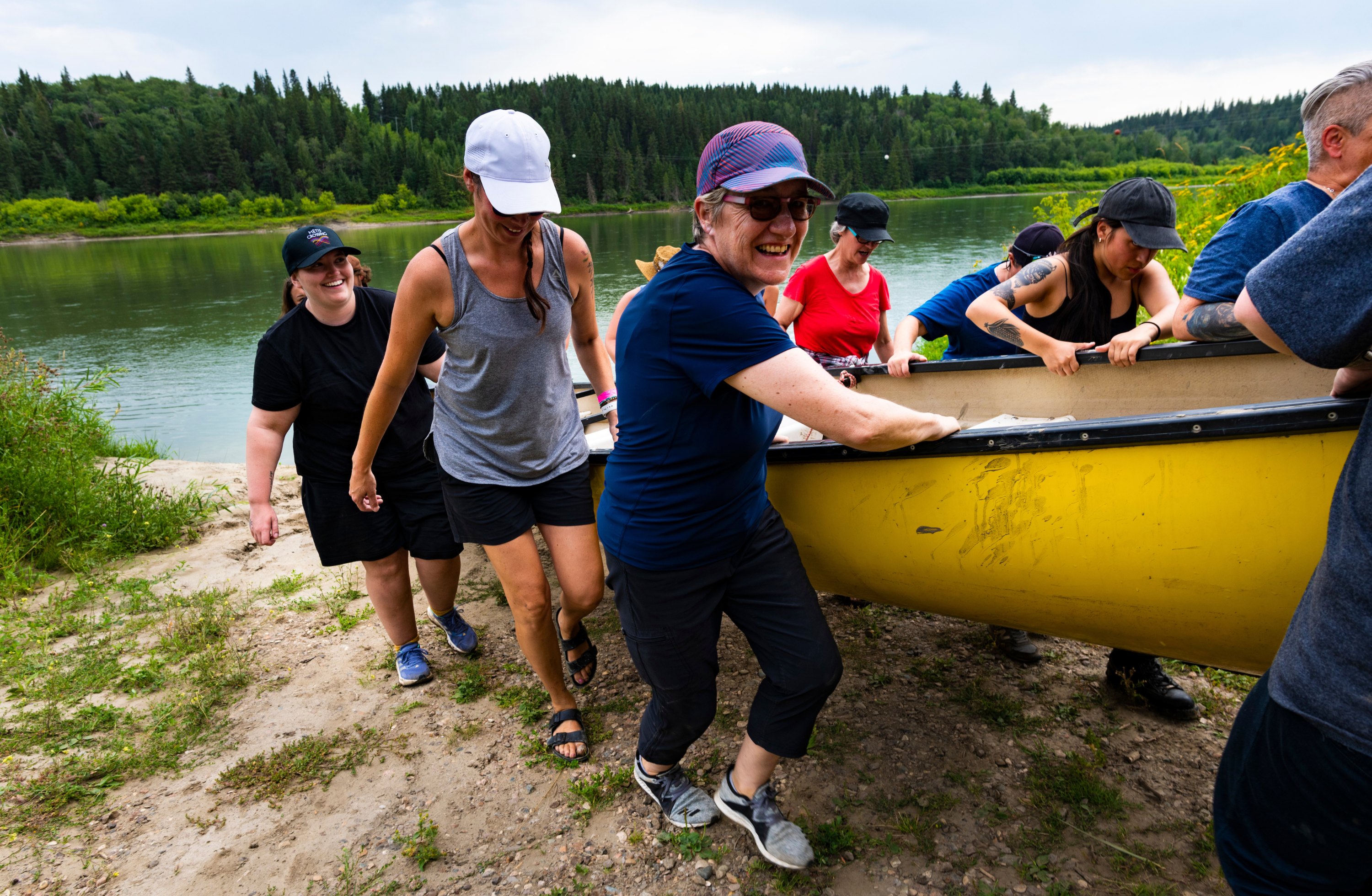Struggling to maneuver a heavy river canoe down a steep embankment, 12 students follow in the very footsteps of Métis from a bygone era.
As they paddle together down the North Saskatchewan River, they channel the spirit of co-operation — or wahkohtowin — required to live in harmony with the land.
“It was humbling and almost sacred for me,” says third-year Native studies student Joanna Schmidt of her immersive experience on Métis land last August.
“I felt like I was paddling with my ancestors … I have an entirely new appreciation for my kin that traversed her waters.”
The exercise was part of a pilot course on Métis land-based learning, launched this summer by Nathalie Kermoal, director of the Rupertsland Centre for Métis Research and acting dean of the Faculty of Native Studies, and Amanda Evans, Métis citizen and PhD student in the Faculty of Native Studies.
The course is designed to provide Indigenous and non-Indigenous students “the opportunity to think about the land in a Métis context, and for Métis students to reconnect to the land,” Kermoal says.
Many are unaware that Edmonton and surrounding areas are land on which Métis people once lived, says Kermoal, and that the U of A sits on a river lot once owned by Laurent Garneau, a Métis entrepreneur who participated in Louis Riel’s Red River Resistance of 1869-70.
The students’ land-based experience followed a week of classroom study, during which they examined the history, culture and practices of Métis people. With U of A Métis scholars, they discussed issues of relationality and land tenure “and how that land tenure was changed by colonization,” says Kermoal.
Classroom study was followed by a week at the Métis Crossing Cultural Gathering Centre, where students lived together as Métis in Alberta once did, guided in discussions and cultural activities by Elder Lilyrose Meyers and Knowledge Holders Weida Johns and Danielle LaRose.

Activities included camping, storytelling, harvesting, gardening, hiking, tracking, tufting and basket making, “all of it connected to the concept of relationality — what we call wahkohtowin,” says Kermoal.
“For most, it was the first time they had an opportunity to connect so closely with an elder and Métis knowledge holder,” she says. “It was really an amazing experience — I learned a lot at the same time.”

Connecting with the land “brought all those readings, lectures and presentations to life, and deepened my understanding of what I was learning,” says third-year arts major Rhonda Ashmore.
“By moving my body in full, I felt connected to the possibility that challenging physical labour would have been part of Métis daily life.”
“It has pushed my desire to be a good ancestor and good ‘moshum’ to the next level,” says participant Collette Cullen. “To be patient, resilient, a good teacher, to be exactly who I am in a respectful and unapologetic way — to be Métis.”
The course reflects commitments to reconciliation in the U of A’s new Indigenous Strategic Plan, says Kermoal, which encourages engagement with Indigenous nations, peoples, lands and knowledge systems. It also follows the renewal last year of a 2011 agreement between the U of A, the Métis Nation of Alberta and the Rupertsland Institute calling for a more Métis-oriented curriculum.
Toward that end, Kermoal says she hopes to offer more opportunities for experiential learning that will allow students to think through things a bit differently.
“It’s important to experience the embodiment of what you may understand intellectually but don't always feel.”
